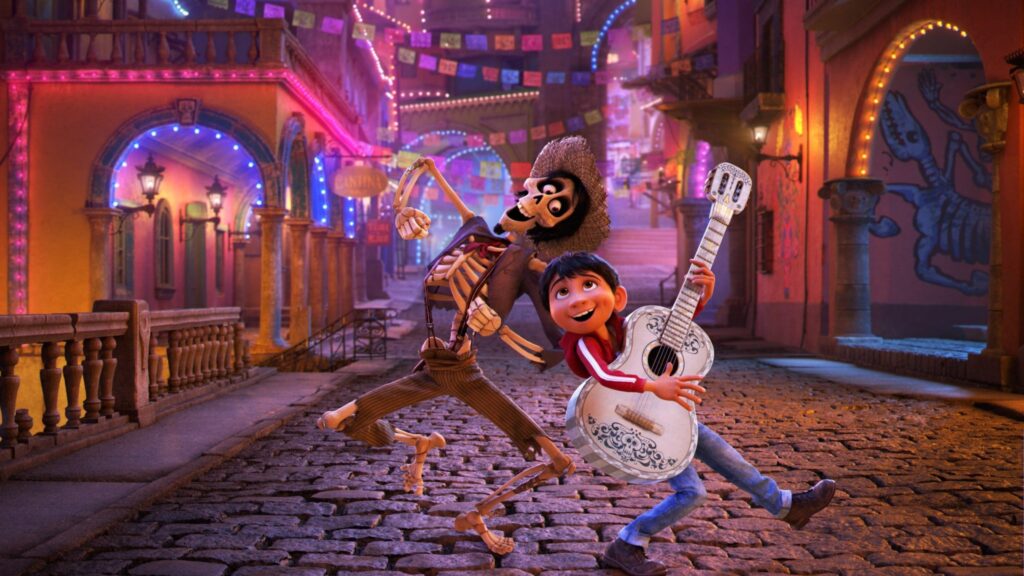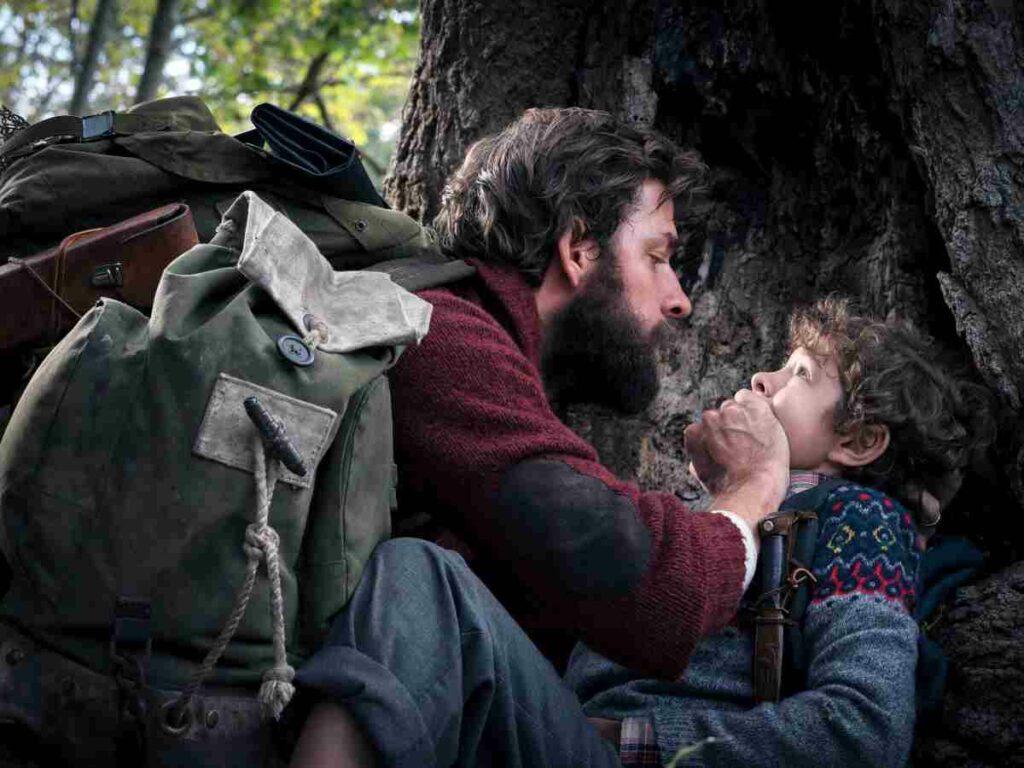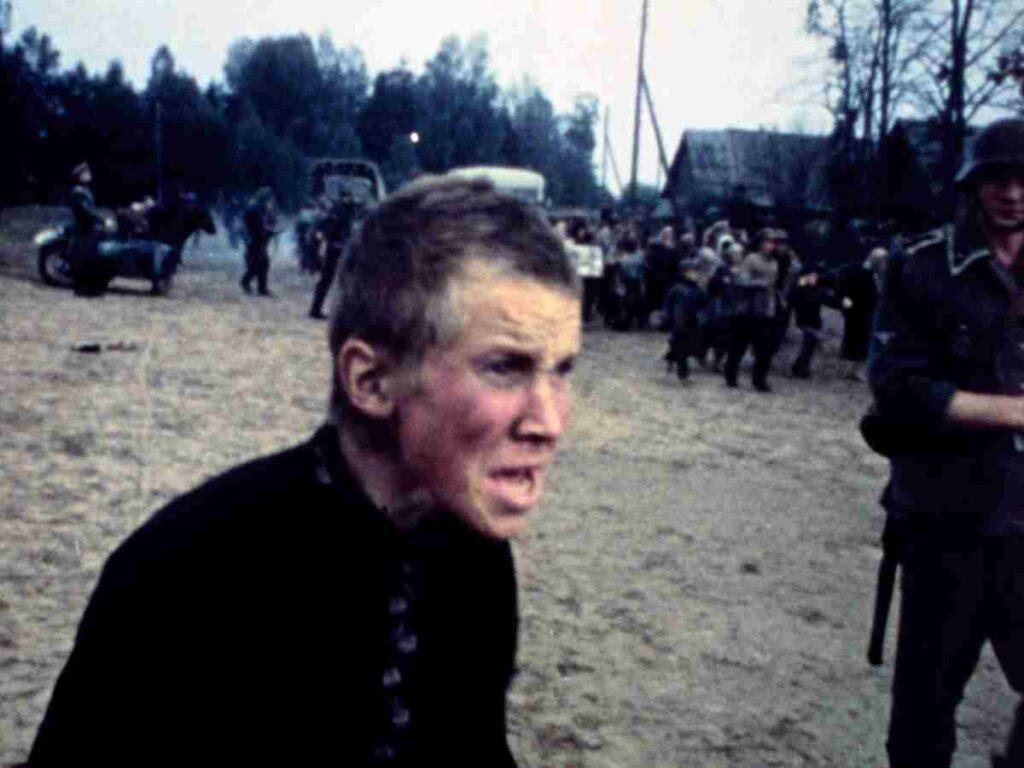2017 hasn’t been a strong year for big-studio animations. Nevertheless, there were fresh indie films that continued to push the boundaries of this distinct medium. Here are the best animation movies of the year that cater to both art-house aficionados as well as those looking for some kids-friendly family entertainers:
11. The Son of Bigfoot
Ben Stassen and Jeremy Degruson’s The Son of Bigfoot is a commercial-minded kids fare on the Sasquatch myth. Belgian-based animation studio nWave Pictures, which previously made the mildly entertaining A Turtle’s Tale, has bankrolled the project. The tale is centered on Adam Harrison, an ordinary teenager from Portland, Oregon. He is a painfully conscious teen, tormented by bullies and concerned about his absentee father. When Adam learns the identity of his father, he runs away into the woods to reconnect with him. But, an evil corporation threatens their reunion. The narrative and visuals are fairly generic, although it has a big-hearted message. Moreover, it boasts enough flair to thoroughly entertain the film’s target audience.
10. Ferdinand
Carlos Saldanha’s Ferdinand is based on Munro Leaf’s 1936 children’s book of the same name. Disney made a 8 minute stand-alone animated short in 1938. The new movie may not contain the inventiveness of Walt Disney, but stays breezy enough to hold kids’ attention. Ferdinand is the misfit among the bull herds. He would rather sniff flowers on hillside than fight with tough bulls. He befriends a loquacious goat named Lucia and three overactive hedgehogs to plan his escape from the farm. Tackling the themes of friendship and bullying, Ferdinand uses familiar yet entertaining story tropes for its target demographic. Its quality doesn’t match the Pixar Standards, nevertheless, it’s a sincere and charming adventurous comedy.
9. Captain Underpants
David Soren’s adaptation of Dav Pilkey’s illustrated children’s book series is as silly and naughty as its title. Two comic-books loving best friends – Harold and George – are known for their inventive practical jokes at school. They work on their titular superhero comic book from a gorgeous tree-house. But when grumpy headmaster Mr. Krupp threatens to move them into separate classes, the boys cook up a plan. Using a magic ring from a cereal box, they hypnotize Krupp into their comic superhero character. The chaos escalates when a laughter-hating villain arrives at the school, under the disguise of a science teacher. The story line actually wouldn’t do justice to its freewheeling spirit and brisk visuals. Despite mildly offensive childish humor, the narrative’s inherent wackiness never makes it tiresome.
8. Cars 3
Brian Fee’s third & final part of Pixar’s series on anthropomorphic automobiles delivers dazzling, kids-friendly entertainment. Unlike the disastrous Cars 2, this one is more personal with plenty of humor and interesting character arcs. Lightning McQueen is now an aging race driver facing the downward slope of his career. Determined to prove himself against new generation of cars, he trains at a state-of-the-art training facility. Young female trainer Cruz Ramirez is tasked to get McQueen back in form. Cars 3 pretty much follow the time-worn underdog template. Nevertheless, it’s definitely enjoyable, thanks to the engrossing visuals and right dose of sentimentality. Cars 3 never touches the emotional highs of Pixar’s Up or Toy Story franchise. Yet it’s not nonsensical and ludicrous as many other contemporary kids-friendly animation.
7. The Lego Batman Movie
Chris McKay’s gleeful Lego Universe movie craftily parodies the different iterations of the. dark and solitary superhero Batman. Batman in this Lego Movie has to drop his lone vigilante status and team up with others to save Gotham from The Joker. The film’s humor arises from the dynamics between self-serious Batman and his enthusiastic collaborators. Although it’s a parody, it has a good structure of its own to track down the caped-crusader’s emotional growth. There are numerous pop-culture references and fans will enjoy the nods to Batman adaptations. The good thing about McKay’s direction is that he doesn’t allow wackiness and endless gags to overwhelm the narrative. Altogether, The Lego Batman Movie is a brilliant celebration of Batman, including all his absurdities.
6. A Silent Voice
Naoko Yamada’s aching tale of atonement is based on the successful manga series by Yoshitoki Oima. The anime handles heavy adolescent themes like bullying, suicide and social angst. The story begins with high school student Ishida planning off to jump from a bridge and commit suicide. He’s a popular boy in school. In sixth grade, a deaf girl named Nishimiya joins his class. Most of the kids in the class teased her, but Ishida is the worst. However, Nishimiya gracefully smiles and offers her friendship to Ishida. When the bullying escalates beyond the point of endurance, the girl’s parents are forced to change school. Subsequently, Ishida’s buddies turn on him. Now, years later, Ishida goes great lengths to redeem himself.
Yamada’s dynamic and impressionistic animation style is similar to Makato Shinkai’s great hit Your Name. The narrative duly makes us reflect on the harmful consequences of bullying, a subject approached with fine sensitivity. While it definitely has some pacing problems and may lack the vigor of Shinkai’s works, anime fans will surely enjoy it.
5. Loving Vincent
Dorota Kobiela and Hugh Welchman’s fabulously animated indie feature tells the imagined story of Vincent Van Gogh’s last days. The tale is set one year (in 1891) after the great painter’s death. Arman Roulin, son of Vincent’s friend is entrusted with a mission to deliver a letter to late Vincent’s brother Theo. Arman isn’t initially very enthusiastic about the task. But as he meets people closer to Van Gogh, he is tempted to comprehend the tortured artist’s world. In time, Arman wonders whether Vincent took his own life as it was officially declared.
The directors and their team of 125 painters amalgamated live-action performances into the oil painting style of animation. The team meticulously turned each frame into an individual painting which amounts to 65,000. This innovative experiment wondrously mimics the legendary painter’s expressive brush strokes and bold colors. More than just being an experiment, the film also works on an emotional and thematic level as well. Kobiela & Welchman’s attuned vision takes a deeper look at Vincent’s struggle as an artist. They also painstakingly explore the unique nature of his creativity. Loving Vincent turned out to be a huge hit in the indie film circuits, reaching $20 million worldwide.
4. Ethel and Ernest
British illustrator/author Raymond Briggs’ graphic novel tells an emotionally rich story of two modest people’s long marital relationship. The dignified titular characters – Ethel and Ernest – are artist Raymond Briggs’ parents. Impeccably rendered through hand-drawn illustration, the lovely film adaptation does justice to Briggs’ intimate vision. The tale begins in 1928, when the couples first meet each other. After marriage they move to a little corner of suburban England. There they live for nearly four decades till their deaths, sharing innumerable joys and pains.
Mr. Raymond, similar to his approach in the famous ‘When the Wind Blows’, observes massive changes in society through one little household. The superior voice performance from Jim Broadbent and Brenda Blethyn perfectly brings the drawn lines to life. Although the film has a PG rating, it’s won’t grab the attention of kids. But the subject matter would make adults look back at their bittersweet domestic lives with selfless parents.
3. In This Corner of the World
Sunao Katabuchi’s crowd-funded anime feature is set during the wartime Japan of 1930s and 1940s. It provides a vivid and ground-level picturization of the devastation war brought upon the innocent Japanese civilians. The Japanese home-front struggle, of course, had been covered thoroughly by historical documents and books. Yet nothing beats the experience of watching familiar history through refreshing and humane pair of eyes. Based on Fumiyo Kono’s acclaimed manga, the narrative unfurls from the perspective of an imaginative young wife Suzu. The story revolves around the countless domestic challenges faced by Suzu and her family. She is a daydreamer who seeks solace from the hard reality by weaving imaginative stories.
In this Corner of the World has a serious, clear-eyed literary perspective that’s solely for adults. Its elegant sketchbook aesthetics profoundly approach war-time life with none of the melodrama and unconvincing epiphanies. Director Katabuchi also excels in visualizing simple, quotidian life with all its little details. All in all, a fine companion piece to Isao Takahata’s masterpiece Grave of the Fireflies (1988).
2. The Breadwinner
The Breadwinner (93 minutes) is a substantial indie animated feature, one that is both universal and deeply personal, about the healing power of stories and countless struggles faced by females in an unequal society. Although labeled as a ‘children’s story’, the narrative itself is often tragic and a bit intense for kids. Nevertheless, the rich characterization of the protagonist Parvana plus the hope and imagination she boasts eventually bring the target audience more gratification than misery. Deborah Ellis’ Parvana is quite unique and at the same time universal. The script is full of small yet nuanced observations, chronicling Parvana’s flourishing imagination alongside her freedom of movement.
1. Coco
Just when we thought Pixar’s recent original (The Good Dinosaur) and sequel (Cars 3) features are of mediocre quality, it gives us a magnificent and heartwarming family saga. Coco is proof enough that Disney-Pixar could still summon emotionally resonant themes for the young and old. It revolves around twelve-year-old Miguel who lives in the village of Santa Cecilla in Mexico. He descends from a family of cobblers, but desires to become a musician. What stops Miguel from pursuing his dream is the family’s ban on music for generations now. Miguel, however, secretly practices guitar while watching movies of the great Mexican singer/actor Ernesto de la Cruz.
Although Miguel’s secret is soon discovered by the family, he remains determined to participate in the local talent competition. The impish boy, on Day of the Dead – the Mexican custom of celebrating ancestors — owing to a chain of events finds himself in the Land of the Dead. There he finds the buried secrets about his family’s past. Coco may seem like a cliched coming-of-age tale with lessons about following one’s dream. But the narrative, which heavily draws from the traditional Mexican folk art, plows through a good deal of emotionally powerful moments. Lee Unkrich’s (Toy Story 3) direction rightly touches the emotional chords without losing itself to melodrama. Altogether, Coco is a perfect celebration of family and the restorative power of music. It’s a yet another bonafide Pixar classic.




